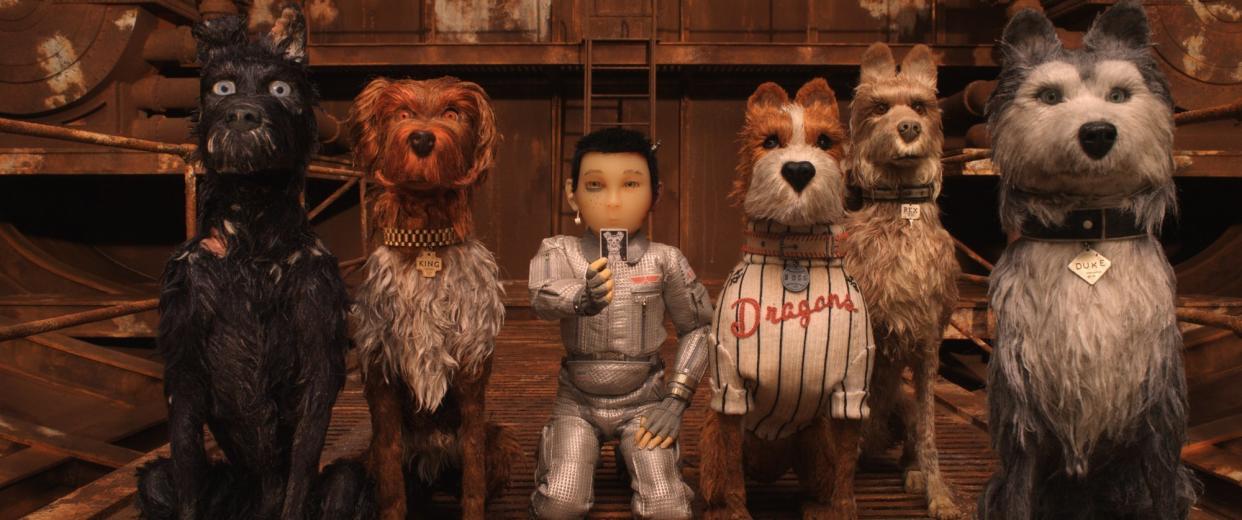Wes Anderson hauled up on 'racial stereotyping' in new movie Isle of Dogs

Wes Anderson may generally be able to do no wrong in the eyes of most critics, but his latest movie is drawing some rare flack.
The stop-motion picture Isle of Dogs is set in a dystopian Japan of the future, where a city mayor has exiled dogs to a remote island due to an outbreak of canine flu.
A boy, called Atari, then travels to the island to find his dog Spots.
But some critics have picked up on some lazy Japanese stereotyping, and have decided to call the director on it.
In the LA Times, film critic Justin Chang took Anderson to task over a ‘weakness for racial stereotyping’.
“It’s in the director’s handling of the story’s human factor that his sensitivity falters, and the weakness for racial stereotyping that has sometimes marred his work comes to the fore,” he writes.

“Much of the Japanese dialogue, especially Atari’s, has been pared down to simple statements that non-speakers can figure out based on context and facial expressions,” he goes on.
“The dogs, for their part, all speak clear American English, which is ridiculous, charming and a little revealing; all these coy linguistic layers amount to their own form of marginalization, effectively reducing the hapless, unsuspecting people of Megasaki to foreigners in their own city.”
In a tweet, fellow Times writer Jen Yamoto agreed, saying: “Thank you, Justin Chang, for devoting far more attention than most critics will to many of the willfully tone-deaf ways Wes Anderson appropriates and marginalizes Japanese culture and people in his so-called homage. It is ugly, indeed.”

In The Washington Post, it was also picked up on that ‘the specter of cultural appropriation haunts’ the film.
On Slant, its critic zeroed in on one scene in particular.
“Worse still is an American exchange student, Tracy, with a crush on Atari, and who leads a singlehanded campaign to turn the tide of public opinion against Mayor Kobayashi, thus reifying old stereotypes about Japanese passivity,” writes Steve MacFarlane.
“Ostensibly for laughs, one scene sees Tracy angrily throttling a crestfallen Japanese scientist by the neck. Given the painstaking frame-by-frame choreography of a film like this, it seems Anderson failed to entirely consider how this might come off to an even remotely skeptical viewership.”
Anderson has previously been picked up on his ‘mishandling of race’.

Critic Jonah Weiner berated him on Slate over his Indian-set movie The Darjeeling Limited, saying viewers should ‘beware of any film in which an entire race and culture is turned into therapeutic scenery’.
“For a director as wilfully idiosyncratic as Anderson, it’s surprising how many white-doofuses-seeking-redemption-in-the-brown-skinned-world clichés Darjeeling Limited inhabits,” he added.
All that said, Isle of Dogs movie has been roundly well reviewed thus far, with a Rotten Tomatoes approval rating of over 90 percent.
The film, which features on its voice cast Bryan Cranston, Ed Norton, Bill Murray, Frances McDormand, Tilda Swinton, Jeff Goldblum and Scarlett Johansson, as well as Japanese actors Kunichi Nomura and Akira Takayama, is out on March 30.
Read more
Robin Williams ‘groped me’ on Mork & Mindy set, says co-star
Nicolas Cage on five of his most famous films
Weinstein bankruptcy frees victims from gagging agreements



